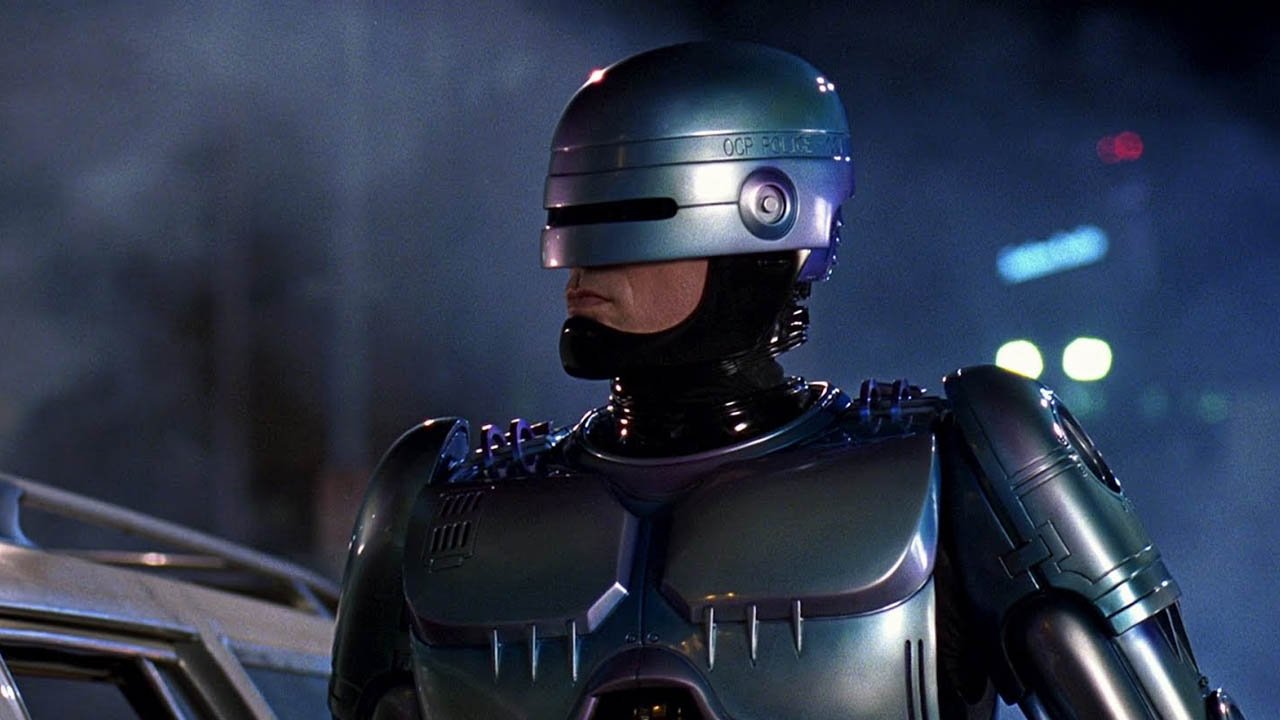Sadly, this is a very unfulfilling weekend at the movies for genre nuts as only limp dramas (Labor Day) and horrendous romantic comedies (That Awkward Moment) are debuting on screens. Thankfully, for those of us in Toronto the TIFF Bell Lightbox is there to help. They’re currently running a retrospective of cult favorite filmmaker Paul Verhoeven, partially due to the impending release of the inevitably disappointing remake of his masterpiece Robocop in a few weeks. The Dutch bad boy has long been one of the most misunderstood and fascinating figures kicking around the film world. So with all of his movies about to add a little welcome sleaze to the squeaky-clean screens of the Lightbox the time seemed right to provide a primer for one of the filthiest and secretly genius filmmakers you might not be aware that you love.

Chapter One: Dutch Days
Following a brief career as a physicist in Holland, a young whippersnapper version of Verhoeven got into filmmaking by making documentary films for the Navy. He showed talent from an early age and soon turned into one of the country’s most promising young directors. He made his feature film debut with the enjoyable, yet forgettable prostitute sex comedy Business Is Business that kicked off a career-long obsession with perversion. His breakout movie came in 1973’s Turkish Delight. The Oscar-nominated feature about a destructive young love affair was one of the most delightfully erotic dramas from the decade of the classy nudie picture. Unlike most of the work that would follow in his storied career, the flick was incredibly naturalistic in its approach to sex, love, obsession, and the mild insanity tied to those activities. It was also Verhoeven’s first flick with his go-to leading man Rutger Hauer (and you’ll see far more of him in Turkish Delight than you ever wished to see). The film was a deserved international sensation that holds up incredibly well thanks to its mix of insightful human psychology and rowdy hanky-panky. Verhoeven followed that up with the deranged 1975 drama Kaie Tippel that hasn’t aged quite as well as Turkish Delight, but was the highest budgeted Danish film of the time and another hit leading to the masterpiece of his early filmmaking career.
That film was 1977’s Soldier Of Orange, a World War II epic about three university students (including the great Rutger Hauer) who join the Dutch resistance following the Nazi occupation. It’s an epic war movie masterpiece filled with the director’s patented preoccupations (namely sex and violence) that launched Rutger Hauer’s international acting career. It also got Verhoeven attention in Hollywood for the first time when a young Steven Spielberg became intoxicated by the film and screened it around town hoping to get Paul a gig. That transition wouldn’t happen in the 70s though. And Verhoeven still had two movies left before making the great migration. First came his highly controversial motocross flick Spetters that has not aged well and was never particularly great. However, in 1983 Verhoeven made the movie that laid the groundwork for his Hollywood career. Chasing a little audience acceptance after the financial failure of Spetters, Verhoeven tried his hand at a Hitchcockian thriller with The Fourth Man. The film was a gloriously stylized romp of bisexual murder and betrayal. It showcased Verhoeven’s skill with audience manipulation and titillation while also introducing the string of self-conscious camp comedy that would define his Hollywood output as much as the lovingly gratuitous sex and violence. The Fourth Man is a ridiculous and laughable bit of pulp, but the good news was that Verhoeven was fully aware of how silly it all was and shot the movie through a winking nod to the audience.
Chapter Two: Hollywood Nights
After The Fourth Man tore up the outhouses with its controversial mix of sleaze and genre satire, Verhoeven finally made the move to Hollywood in 1985 with the sword n’ blood epic Flesh + Blood. The director played things fairly straight in his Hollywood debut (well, as straight as any movie can play when it stars Hauer with a ludicrously large earring), focusing his attentions on creating a vision of Middle Age warfare devoid of any Hollywood sheen. The battles are vicious, the world completely filthy. It’s a vision of things as they really were in those days and Verhoeven cleverly frames seemingly heroic rebellion as a gross orgy of sex, violence, and misplaced good intentions. It’s not the director’s finest hour in Hollywood, but it is a fascinating and blood-soaked starting point to his Hollywood career that’s often unfairly overlooked.
Next up came what is arguably the director’s masterpiece and one of the finest sci-fi action flicks of the 80s: Robocop. When Verhoeven was initially given Edward Neumeier’s script he dismissed it outright as Hollywood hokum thanks to the admittedly dumbbell title. However, Verhoeven’s wife who clearly knew him better than he knew himself at the time suggested that he reread it having missed the fact that it was a satire. Oh how right she was. The genius of Robocop is that it could play like a straight up gory action flick for an indiscriminate 80s action crowd, but it was secretly a brilliant send up of the ultraviolent action hero and America’s unhealthy fascination with fascist law enforcement. The script needed an outsider voice like Verhoeven to helm it and draw out all the knowing self-parody without losing sight of the action spectacle. That’s exactly what the director did and in the process delivered one of the sneakily smartest blockbusters of the 80s that only seems to get better with age. It’s impossible to imagine that the upcoming remake will work on all the levels that Verhoeven pulled off, but it will be interesting to see them try.
Next up, Verhoeven was picked to be the director of the much -delayed Philip K Dick adaptation Total Recall. The likes of David Cronenberg and Dan O’Bannon (screenwriter of Alien, writer/director of Return Of The Living Dead) had attempted to make a film that honored Dick’s reality-bending concept, but Hollywood saw it as fodder for a dumb action flick and ultimately fired them both. By the time Verhoeven got involved, the script had been streamlined into an Arnold Schwarzenegger vehicle, and the director once again proved to be an inspired choice. He teased out Dick’s concept as much as was possible in a silly Arnie flick, while infusing the movie with the action-movie-excess satire of Robocop. The film was filled with slapstick rubber gore, weirdo perversion (three breasted aliens, anyone?), and one-liners custom made for Arnold. It was a thrilling, glossy blockbuster that played to Arnie and Verhoeven’s tongue-in-cheek strengths. Total Recall proved to be the biggest hit either the director or star had managed to that date and has since gone on to become a deserved genre classic. If you somehow have never seen Total Recall by now, do yourself a favor and get your ass to Mars.
Next up Verhoeven embarked on a two-film odyssey with the overpaid, sleazy 90s Hollywood screenwriting star Joe Eszterhas. Their first collaboration was on the massive worldwide hit Basic Instinct. It was another bi-sexual thriller for Verhoeven about a serial killing sexpot that made Sharon Stone a superstar. The director toned down his campy vibe and got the biggest hit of his career for his troubles. However, the film likely would have been entirely forgettable without a director wise enough not to take it very seriously and talented enough to turn all of Eszterhas’ half-baked ideas into genuine thrills. Next up, the pair delivered the notorious disaster that is Showgirls. Upon release, the Vegas sex n’ cheese fest was considered one of the worst movies ever made since then it’s become a camp classic and the filmmakers claim that was always intentional. Personally, I only half believe that. Eszterhas definitely delivered a horrendously sexist and needlessly lurid screenplay, but given Verhoeven’s taste for camp comedy I find it hard to believe that he wasn’t aware of what a funny mess he was making. The film deserves its joint status as a camp and cult classic. It can either be a so-bad-it’s-good bit of trash or a tongue-in-cheek satire of similar Hollywood trash depending on what the viewer brings to it. The truth of the initial intentions of the filmmakers most likely lies somewhere in between those two extremes.
Following the Showgirls debacle, Verhoeven attempted to get back in Hollywood’s good graces with the sci-fi blockbuster Starship Troopers. The director might not have been involved with any of the official Robocop sequels, but this cult classic sure feels like a spiritual sequel. Reteaming with Robocop screenwriter Edward Neumeier, Verhoeven adapted Robert A. Heinlein’s fascist rah-rah military tale of the US army vs. giant space bugs into a knowing satire of American imperialism and idiotic Hollywood blockbusters about the same subject. With a tongue planted firmly in his cheek, Verhoeven delivered a massive, ultraviolent, bug stomping sci-fi blockbuster that mocked blind military patriotism and populated the cast with wooden Hollywood models/actors delivering stilted performances for campy laughs. Only Neil Patrick Harris seemed to be in on the joke and it launched the ironic comedy second birth of his career. Meanwhile, stars like Casper Van Dien and Denise Richard delivered horrendous performances that Verhoeven wryly encouraged for comedy in a sneak attack satire on Hollywood excess. It’s a brilliant movie, but at the time, most audiences didn’t get the joke, and it was only a modest hit (unlike Robocop, the movie doesn’t play well if you aren’t hip to the irony). With two box office disappointments under his belt, Verhoeven attempted to play it straight and get a genuine hit out of his 2000 invisible man flick Hollow Man. Unfortunately, the movie wasn’t very good, and the director proved that he isn’t the best choice for unironic blockbusters. And with that, his bizarre Hollywood career was over.
Chapter 3: Return To The Motherland
Following the failure of Hollow Man, Paul Verhoeven licked his wounds and returned to Holland. There, he was still considered a national treasure, and in 2006, he launched a wonderful comeback vehicle Black Books. A sort of companion piece to Soldier Of Orange, the flick was another meditation on the corrupt morality of war filled with stunning action, perverse interludes, and just a touch of knowing humor. It was easily one of the director’s finest efforts and is well worth a look for any fans that missed it. Sadly, Black Books proved only to be a hit in Europe, so the director never got a chance to return to Hollywood or even mount another European blockbuster. Instead, he was sadly silent for another six years before directing the weirdo experiment Tricked. Verhoeven and his screenwriters came up with a concept and then the script was finished by “user-generated” submissions from the public. I’ve never seen the movie that will screen for the first time in Canada as part of TIFF’s retrospective, but the concept sounds intriguing and I’m certain that the delivery will be just as filthy, knowing, and clever as audiences have come to expect from the director.
So there you have it, an overview of one of the strangest and most unique careers of any filmmaker in history. Paul Verhoeven has an undeniable warped genius that led to a series of foreign art house hits and blockbuster satires that Hollywood didn’t quite realized they’d made until the final product arrived. Regardless of which section of the director’s career you decide to sample, rest assured that you’ll have a good time. If nothing else, Verhoeven is a showman and entertainer who delivers the lurid thrills everyone secretly loves about the movies filtered through a cracked point-of-view that never insults the viewer’s intelligence. There’s no other filmmaker quite like Paul Verhoeven, so savor his movies, people. It’s unlikely anyone will have a career like this again.




